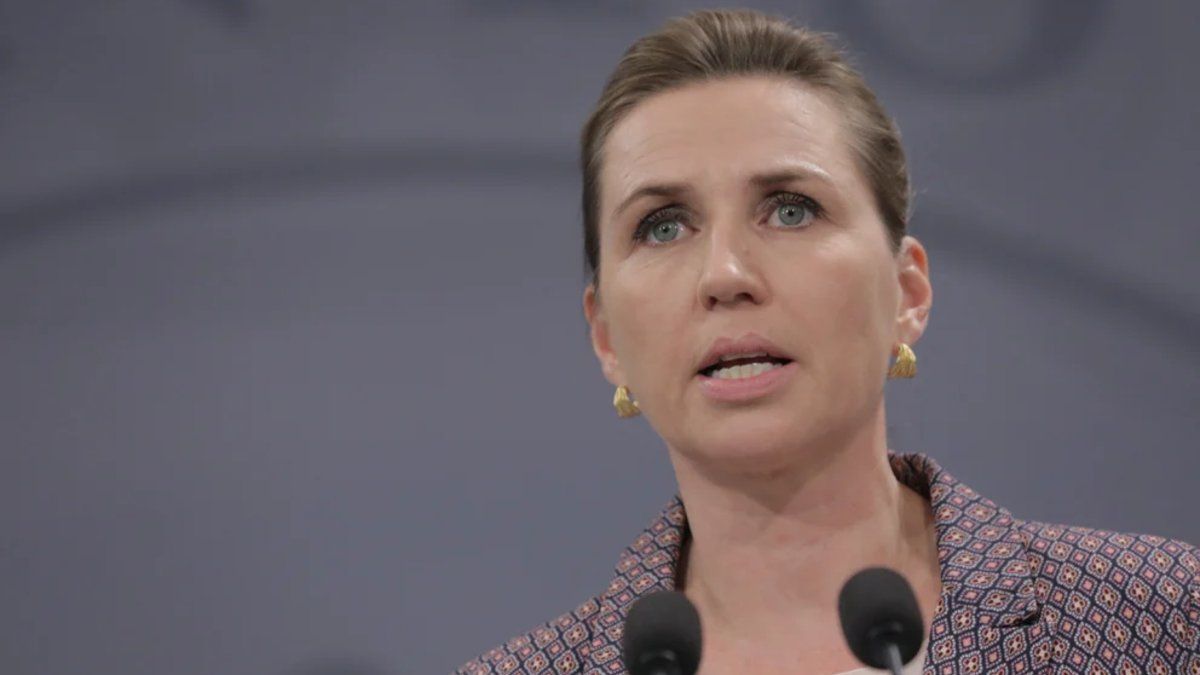Mette Frederiksenthe prime minister of Denmarkwas attacked this Friday by a man in a square in the capital Copenhagen, according to the Government. The aggressor was detained.
In the statement, they detailed that “Prime Minister Mette Frederiksen was beaten by a man on Friday night at Kultorvet in Copenhagen. The man was arrested.” In addition, they added that she was “shocked by the incident.”
The incident occurs surprisingly close to the assassination attempt of the Prime Minister of Slovakia, Robert Ficowho was attacked last month in the city of Handlová, located in the center of the European country.
Police in the Danish capital confirmed that an incident involving the prime minister had occurred, but did not provide further details: “We have one person detained in relation to the case, which we are investigating. At this time we have no further comments or observations on the case.“he declared in a statement on X.
“I must say that it shocks all of us who are close to her,” said the Danish Environment Minister, Magnus Heunicke, in a message on social networks. “Something like this should not happen in our beautiful, safe and free country,” she added.
The president of the European Council, Charles Michel“strongly condemned this cowardly act of aggression“, while the president of the European Parliament, Roberta Metsola, wrote in X that “violence has no place in politics.”
Danes, like other European citizens, are preparing to vote this Sunday in the European Parliament elections.
The European Union holds elections to appoint new members of Parliament
The citizens of the European Union (EU) You will be able to cast your vote from this Thursday June 6 to Sunday June 9 to choose 720 deputies of the European Parliament to occupy the position for the next five years. In total, around 370 million people They are called to the polls.
The Eurolegislators will then appoint the leaders of the other two major EU institutions: the European Comission, which is the executive arm of the bloc, and the only body that can propose laws to the European Parliament; and the European Councilwhich represents the countries.
The elections, which started this Thursday, were inaugurated with the voting in the Netherlandsamidst projections of a marked growth of the far right.
What is the European Parliament and how does it work?
He European Parliament It is one of the seven institutions that confirm the European Union, and the only legislative one whose Members are elected directly by citizenswhich gives crucial importance to your votes.
As the experts explain, the results that emerge from the polls “will shape the balance of forces and leadership in other key institutions: the Commission, the Council presidency and several other powers that oil the EU machinery.” Furthermore, they point out that these elections “will be critical not only for the Union itself, but also for the world in general.”
For its part, the parliamentary body defends the interests of the citizens of the European Union at a continental level, covering issues ranging from the economy and the fight against poverty to climate change and security.
Together with the Council of the European Union, parliamentarians modify and approve legislation of the EU, including multi-year and annual budget. In addition, they deal with issues such as human rights, freedom, democracy, equality and the rule of law.
For this year’s elections, the number of deputies that make up the legislative body increased to 720 seats compared to 705 previouslyas two additional places have been allocated to Spain, France and the Netherlands, and one more to Austria, Denmark, Belgium, Poland, Finland, Slovakia, Ireland, Slovenia and Latvia.
Source: Ambito




